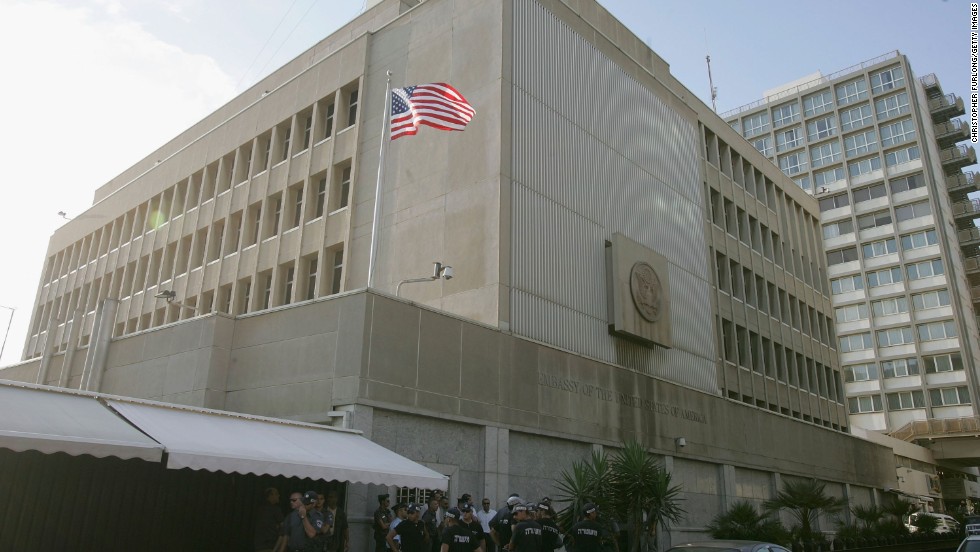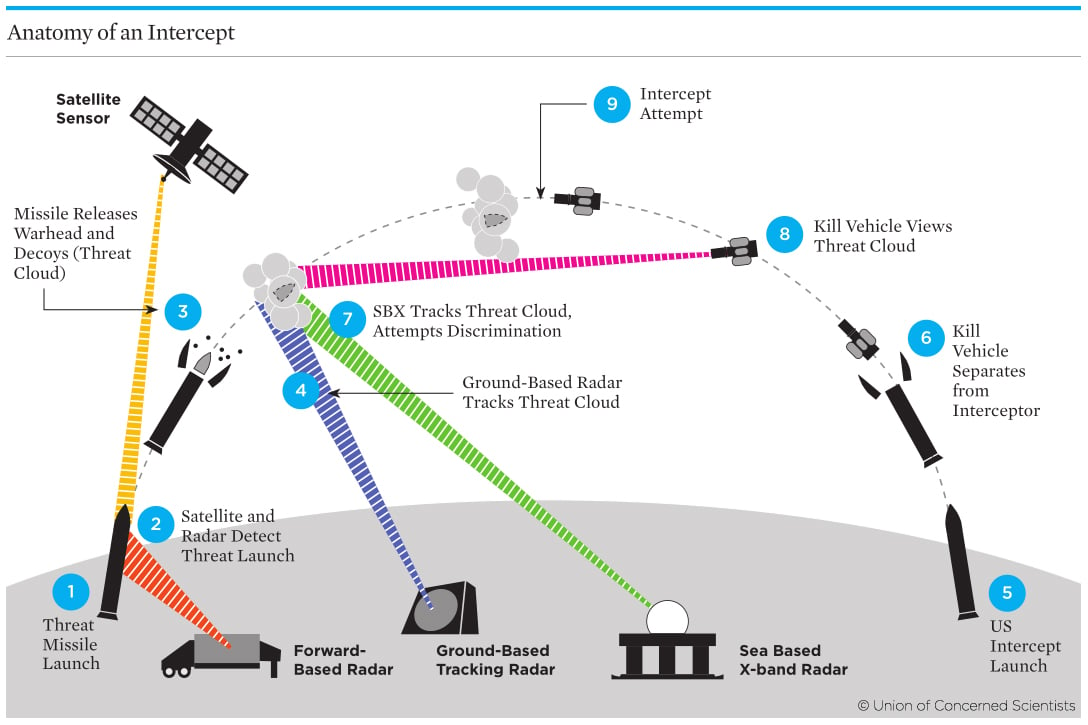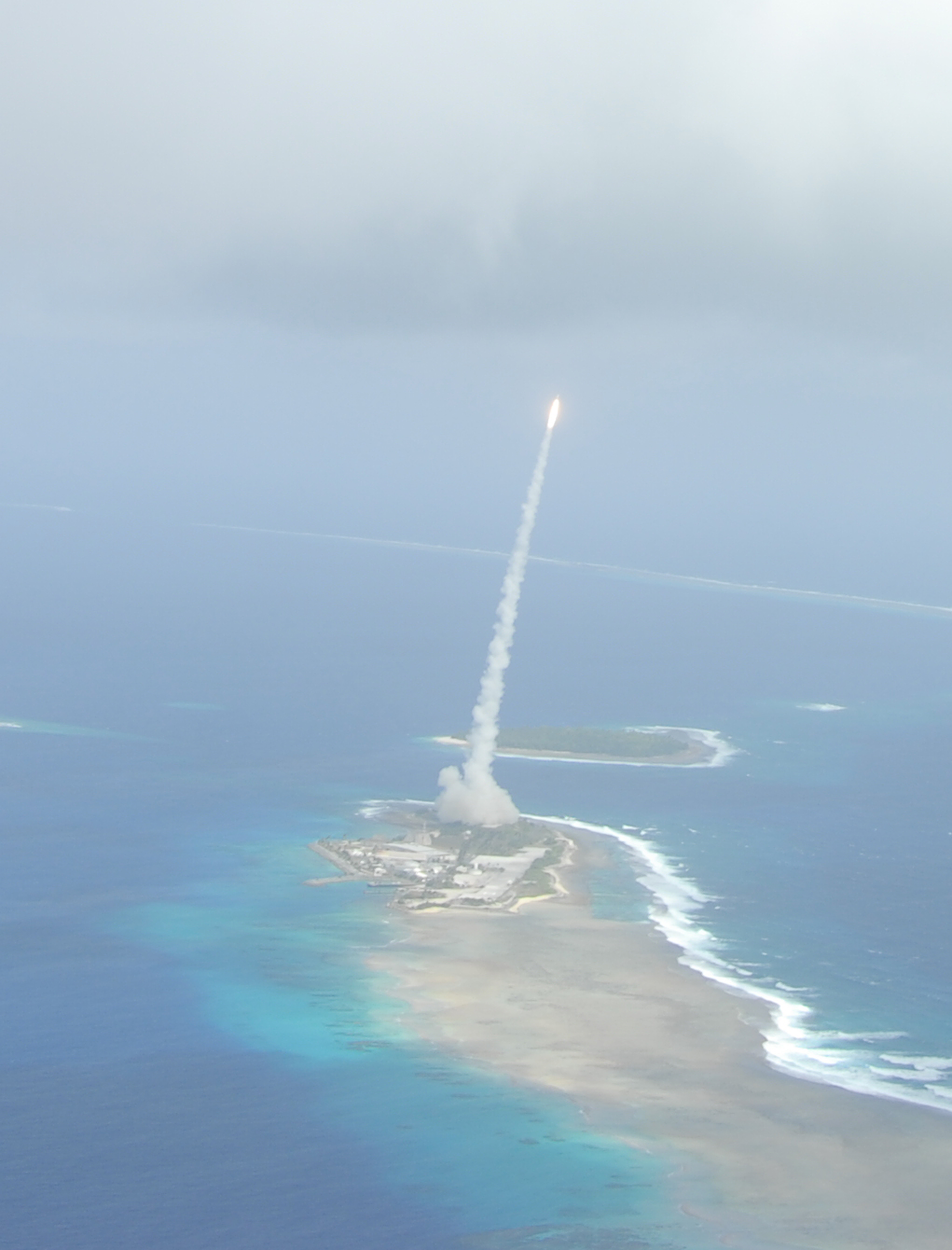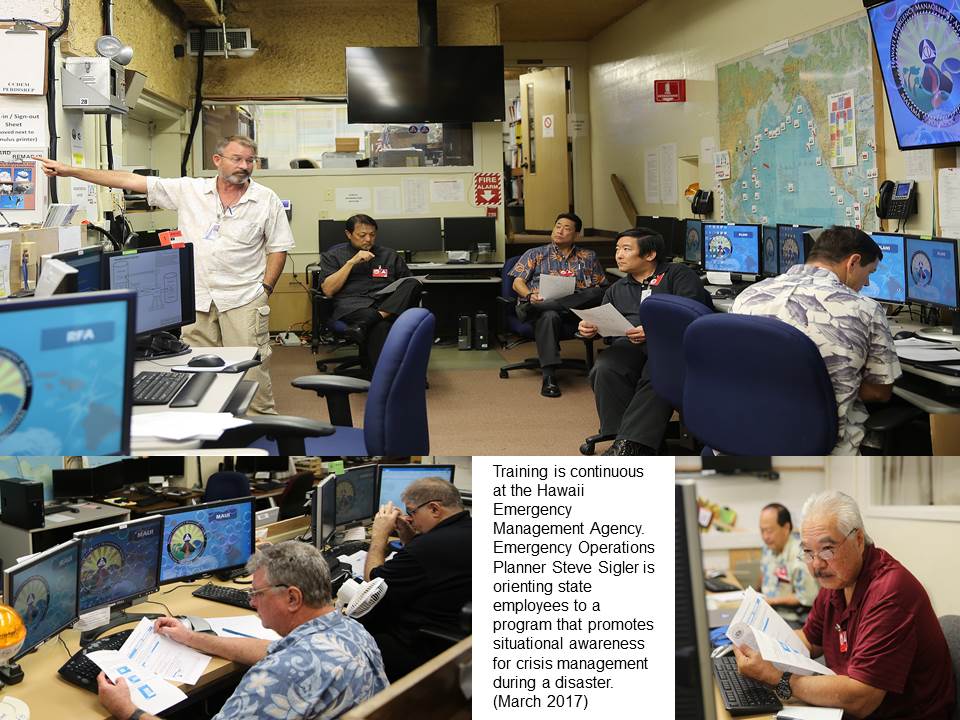Huge speech and decision. If the Palestinians can have their own capitol, why not Israel? In reality and presently the United States does have a consulate in Jerusalem already. Marine FAST teams (elite security forces) and increased security have already been ordered at most U.S. diplomatic operations in key locations around the world, expecting protests.
Additionally, did you know the Palestinians have an embassy in Washington DC?
The White HouseOffice of the Press SecretaryDecember 06, 2017President Donald J. Trump’s Proclamation on Jerusalem as the Capital of the State of Israel
“My announcement today marks the beginning of a new approach to the conflict between Israel and the Palestinians.” – President Donald J. Trump
RECOGNIZING JERUSALEM: President Donald J. Trump is following through on his promise to recognize Jerusalem as the capital of the State of Israel and has instructed the State Department to begin to relocate the U.S. Embassy to Israel from Tel Aviv to Jerusalem.
- Today, December 6, 2017, President Trump recognized Jerusalem, the ancient capital of the Jewish people, as the capital of the State of Israel.
- In taking this action, President Trump fulfilled a major campaign promise of his and many previous Presidential candidates.
- The Trump Administration is fully coordinated in supporting this historic action by the President, and has engaged broadly with both our Congressional and international partners on this issue.
- President Trump’s action enjoys broad, bipartisan support in Congress, including as expressed in the Jerusalem Recognition Act of 1995. This Act was reaffirmed by a unanimous vote of the Senate only six months ago.
- President Trump has instructed the State Department to develop a plan to relocate the U.S. Embassy from Tel Aviv to Jerusalem.
- Departments and Agencies have implemented a robust security plan to ensure the safety of our citizens and assets in the region.
STATUS OF JERUSALEM: President Trump recognizes that specific boundaries of sovereignty in Jerusalem is highly sensitive and subject to final status negotiations.
- President Trump recognizes that the status of Jerusalem is a highly-sensitive issue, but he does not think the peace process is aided by ignoring the simple truth that Jerusalem is home to Israel’s legislature, supreme court, President, and Prime Minister.
- President Trump recognizes that the specific boundaries of Israeli sovereignty in Jerusalem are subject to final status negotiations between the parties.
- President Trump reaffirms United States support for the status quo at the Temple Mount, also known as Haram al Sharif.
COMMITTED TO THE PEACE PROCESS: President Trump is committed to achieving a lasting peace agreement between Israelis and Palestinians.
- President Trump remains committed to achieving a lasting peace agreement between the Israelis and Palestinians, and he is optimistic that peace can be achieved.
- Delaying the recognition of Jerusalem as the capital of Israel has not helped achieve peace over the past two decades.
- President Trump is prepared to support a two-state solution to the dispute between the Israelis and Palestinians, if agreed to by the parties.
*** This proclamation will hurt the peace process? Really? 70 years with of talks and countless deals offered where they were ALL rejected by the Palestinian leadership? It is not clear however what the current talks include with regard to a peace deal, where full sovereignty of Israel is included or borders much less construction of housing of which all anti-Israel types call settlements.
*** How about this timeline that went back to President Truman?
Compiled by Raymond H. Geselbracht from Harry S. Truman and the Founding of Israel (Westport, Connecticut, 1997) by Michael T. Benson The United States and the Recognition of Israel: A Chronology
[ 1939 | 1945 | 1946 | 1947 | 1948 | 1949 ] May 17, 1939: British White Paper on Palestine
May 25, 1939: Senator Harry S. Truman inserts in the Congressional Record strong criticism of the British White Paper on Palestine, saying it is a dishonorable repudiation by Britain of her obligations.
August 24, 1945: Loy Henderson, director of the State Department’s Near East Agency, writes to Secretary of State James Byrnes that the United States would lose its moral prestige in the Middle East if it supported Jewish aspirations in Palestine.
August 24, 1945: The report of the Intergovernment Committee on Refugees, called the Harrison Report, is presented to President Truman. The report is very critical of the treatment by Allied forces of refugees, particularly Jewish refugees, in Germany.
August 31, 1945: President Truman writes British Prime Minister Clement Attlee, citing the Harrison Report and urging Attlee to allow a reasonable number of Europe’s Jews to emigrate to Palestine.
October 22, 1945: Senators Robert Wagner of New York and Robert Taft of Ohio introduce a resolution expressing support for a Jewish state in Palestine.
November 13, 1945: The British government announces the formation of an Anglo-American Committee of Inquiry to investigate Britain’s handling of the Palestine situation. The committee begins work on January 4, 1946.
November 29, 1945: At a press conference, President Truman expresses opposition to the Taft-Wagner resolution. He says he wants to await and consider the report of the Anglo-American Committee of Inquiry.
April 20, 1946: The Anglo-American Committee of Inquiry submits its report, which recommends that Britain immediately authorize the admission of 100,000 Jews into Palestine.
May 8, 1946: President Truman writes to Prime Minister Attlee, citing the report of the Anglo-American Committee of Inquiry, and expressing the hope that Britain would begin lifting the barriers to Jewish immigration to Palestine.
June 21, 1946: A Joint Chiefs of Staff memorandum to the State-War-Navy Coordinating Committee warns that if the United States uses armed force to support the implementation of the recommendations of the report of the Anglo-American Committee of Inquiry, the Soviet Union might be able to increase its power and influence in the Middle East, and United States access to Middle East oil could be jeopardized.
September 24, 1946: Counsel to the President Clark Clifford writes to the President to warn that the Soviet Union wishes to achieve complete economic, military and political domination in the Middle East. Toward this end, Clifford argues, they will encourage the emigration of Jews from Europe into Palestine and at the same time denounce British and American policies toward Palestine and inflame the Arabs against these policies.
October 4, 1946: On the eve of Yom Kippur, President Truman issues a statement indicating United States support for the creation of a “viable Jewish state.”
October 23, 1946: Loy Henderson, director of the State Department’s Near East Agency, warns that the immigration of Jewish Communists into Palestine will increase Soviet influence there.
October 28, 1946: President Truman writes to King Saud of Saudi Arabia, informing the king that he believes “that a national home for the Jewish people should be established in Palestine.”
1947-48: The White House receives 48,600 telegrams, 790,575 cards, and 81,200 other pieces of mail on the subject of Palestine.
February 7, 1947: The British government announces that it will terminate its mandate for Palestine.
February 14, 1947: The British government announces that it will refer the problem of the future of Palestine to the United Nations.
April 2, 1947: The British Government submits to the General Assembly of the United Nations an account of its administration of Palestine under the League of Nations mandate, and asks the General Assembly to make recommendations regarding the future government of Palestine.
May 13, 1947: The United Nations General Assembly appoints an eleven nation Special Committee on Palestine to study the Palestine problem and report by September 1947.
August 31, 1947: The United Nations Special Committee on Palestine issues its report, which recommends unanimously (all 11 member states voting in favor) that Great Britain terminate their mandate for Palestine and grant it independence at the earliest possible date; and which also recommends by majority vote (7 of the member nations voting in favor) that Palestine be partitioned into Jewish and Arab states.
September 17, 1947: Secretary of State George Marshall, in an address to the United Nations, indicates that the United States is reluctant to endorse the partition of Palestine.
September 22, 1947: Loy Henderson, director the State Department’s Near East Agency, addresses a memorandum to Secretary of State George Marshall in which he argues against United States’ advocacy of the United Nations proposal to partition Palestine.
October 10, 1947: The Joint Chiefs of Staff argue in a memorandum entitled “The Problem of Palestine” that the partition of Palestine into Jewish and Arab states would enable the Soviet Union to replace the United States and Great Britain in the region and would endanger United States access to Middle East oil.
October 11, 1947: Herschel Johnson, United States deputy representative on the United Nations Security Council, announces United States support for the partition plan of the United Nations Special Committee on Palestine.
October 17, 1947: President Truman writes to Senator Claude Pepper: “I received about 35,000 pieces of mail and propaganda from the Jews in this country while this matter [the issue of the partition of Palestine, which was being considered by the United Nations Special Committee on Palestine from May 13, 1947 to August 31, 1947] was pending. I put it all in a pile and struck a match to it — I never looked at a single one of the letters because I felt the United Nations Committee [United Nations Special Committee on Palestine] was acting in a judicial capacity and should not be interfered with.”
Ca. November 1947: A subcommittee of the United Nations Special Committee on Palestine establishes a timetable for British withdrawal from Palestine.
November 19, 1947: Chaim Weizmann meets with President Truman and argues that the Negev region has great importance to the future Jewish state.
November 24, 1947: Secretary of State George Marshall writes to Under Secretary of State Robert Lovett to inform him that British Foreign Secretary Ernest Bevin had told him that British intelligence indicated that Jewish groups moving illegally from the Balkan states to Palestine included many Communists.
November 29, 1947: The United Nations General Assembly approves the partition plan for Palestine put forward by the United Nations Special Committee on Palestine. The 1947 UN Partition divided the area into three entities: a Jewish state, an Arab state, and an international zone around Jerusalem.
December 2, 1947: President Truman writes to former Secretary of the Treasury Henry Morgenthau, Jr., encouraging him to tell his Jewish friends that it is time for restraint and caution. “The vote in the U.N.,” Truman wrote, “is only the beginning and the Jews must now display tolerance and consideration for the other people in Palestine with whom they will necessarily have to be neighbors.”
December 5, 1947: Secretary of State George Marshall announces that the State Department is imposing an embargo on all shipments of arms to the Middle East.
December 12, 1947: President Truman writes to Chaim Weizmann, president of the Jewish Agency for Palestine and the World Zionist Organization, that it is essential that restraint and tolerance be exercised by all parties if a peaceful settlement is to be reached in the Middle East.
February 4, 1948: Chaim Wiezmann, president of the Jewish Agency for Palestine and the World Zionist Organization, arrives in New York.
February 12, 1948: Secretary of Defense James Forrestal says at a meeting of the National Security Council that any serious attempt to implement partition in Palestine would set in motion events that would result in at least a partial mobilization of United States armed forces.
February 19, 1948: Secretary of State George Marshall says at a press conference, when asked if the United States would continue to support partition, that the “whole Palestine thing,” was under “constant consideration.”
February 21, 1948: Eddie Jacobson, a longtime and close personal friend of President Truman, sends atelegram to Truman, asking him to meet with Chaim Weizmann, the president of the Jewish Agency for Palestine and the World Zionist Organization.
February 22, 1948: President Truman instructs Secretary of State George Marshall that while he approves in principle a draft prepared by the State Department of a position paper which mentions as a possible contingency a United Nations trusteeship for Palestine, he does not want anything presented to the United Nations Security Council that could be interpreted as a change from the position in favor of partition that the United States announced in the General Assembly on November 29, 1947. He further instructs Marshall to send him for review the final draft of the remarks that Warren Austin, the United States representative to the United Nations, is to give before the Security Council on March 19, 1948.
February 27, 1948: President Truman writes to his friend Eddie Jacobson, refusing to meet with Chaim Weizmann, the president of the Jewish Agency for Palestine and the World Zionist Organization.
March 8, 1948: Counsel to the President Clark Clifford writes to President Truman, in a memorandum entitled “United States Policy with Regard to Palestine,” that Truman’s actions in support of partition are “in complete conformity with the settled policy of the United States.”
March 9, 1948: Secretary of State George Marshall instructs Warren Austin, United States representative to the United Nations, that if a United Nations special assembly on Palestine were convened, the United States would support a United Nations trusteeship for Palestine.
March 12, 1948: The United Nations Special Committee on Palestine reports that “present indications point to the inescapable conclusion that when the [British] mandate is terminated, Palestine is likely to suffer severely from administrative chaos and widespread strife and bloodshed.”
March 13, 1948: President Truman’s friend Eddie Jacobson walks into the White House without an appointment and pleads with Truman to meet with Chaim Weizmann, the president of the Jewish Agency for Palestine and the World Zionist Organization. Truman responds: “You win, you baldheaded son-of-a-bitch. I will see him.”
March 18, 1948: President Truman meets with Chaim Weizmann, the president of the Jewish Agency for Palestine and the World Zionist Organization. Truman says he wishes to see justice done in Palestine without bloodshed, and that if the Jewish state were declared and the United Nations remained stalled in its attempt to establish a temporary trusteeship over Palestine, the United States would recognize the new state immediately.
March 18, 1948: The United Nations Special Commission on Palestine reports to the United Nations Security Council that it has failed to arrange any compromise between Jews and Arabs, and it recommends that the United Nations undertake a temporary trusteeship for Palestine in order to restore peace.
March 19, 1948: United States representative to the United Nations Warren Austin announces to the United Nations Security Council that the United States position is that the partition of Palestine is no longer a viable option.
March 20, 1948: Secretary of State George Marshall announces that the United States will seek to work within the United Nations to bring a peaceful settlement to Palestine, and that the proposal for a temporary United Nations trusteeship for Palestine is the only idea presently being considered that will allow the United Nations to address the difficult situation in Palestine.
March 21, 1948: President Truman writes in his diary regarding the confusion caused by the State Department’s handling of the trusteeship issue: “I spend the day trying to right what has happened. No luck. Marshall makes a statement. Doesn’t help a bit.”
March 21, 1948: President Truman writes to his sister Mary Jane Truman that the “striped pants conspirators” in the State Department had “completely balled up the Palestine situation.” But, he writes, “it may work out anyway in spite of them.”
March 22, 1948: President Truman writes to his brother Vivian Truman regarding Palestine: “I think the proper thing to do, and the thing I have been doing, is to do what I think is right and let them all go to hell.”
March 25, 1948: President Truman says at a press conference that a United Nations trusteeship for Palestine would be only a temporary measure, intended to establish the peaceful conditions that would be the essential foundation for a final political settlement. He says that trusteeship is not a substitute for partition.
April 11, 1948: President Truman’s friend Eddie Jacobson enters the White House unnoticed by the East Gate and meets with Truman. Jacobson recorded of this meeting: “He reaffirmed, very strongly, the promises he had made to Dr. Weizmann and to me; and he gave me permission to tell Dr. Weizmann so, which I did. It was at this meeting that I also discussed with the President the vital matter of recognizing the new state, and to this he agreed with a whole heart.”
May 12, 1948: President Truman meets in the Oval Office with Secretary of State George Marshall, Under Secretary of State Robert Lovett, Counsel to the President Clark Clifford and several others to discuss the Palestine situation. Clifford argues in favor of recognizing the new Jewish state in accordance with the United Nations resolution of November 29, 1947. Marshall opposes Clifford’s arguments, and contends they are based on domestic political considerations. He says that if Truman follows Clifford’s advice and recognizes the Jewish state, then he (Marshall) would vote against Truman in the election. Truman does not clearly state his views in the meeting.
May 12, 13, and 14, 1948: Counsel to the President Clark Clifford and Under Secretary of State Robert Lovett discuss the different views held in the White House and the State Department regarding whether the United States should recognize the Jewish state. Lovett reports to Clifford on May 14 that Marshall will neither support nor oppose Truman’s plan to recognize the Jewish state, that he will stay out of the entire matter.
May 13, 1948: Chaim Weizmann, president of the Jewish Agency for Palestine and the World Zionist Organization, writes to President Truman: “I deeply hope that the United States, which under your leadership has done so much to find a just solution [to the Palestine situation], will promptly recognize the Provisional Government of the new Jewish state. The world, I think, would regard it as especially appropriate that the greatest living democracy should be the first to welcome the newest into the family of nations.”
May 14, 1948: late morning eastern standard time (late afternoon in Palestine): David Ben-Gurion, Israel’s first prime minister, reads a “Declaration of Independence,” which proclaims the existence of a Jewish state called Israel beginning on May 15, 1948, at 12:00 midnight Palestine time (6:00 p.m., May 14, 1948,eastern standard time).
May 14, 1948, 6 p.m. eastern standard time (12:00 midnight in Palestine): The British mandate for Palestine expires, and the state of Israel comes into being.
May 14, 1948, 6:11 p.m. eastern standard time: The United States recognizes Israel on a de facto basis. The White House issues the following statement: “This Government has been informed that a Jewish state has been proclaimed in Palestine, and recognition has been requested by the provisional government thereof. The United States recognizes the provisional government as the de facto authority of the State of Israel.” To see a color copy of this document click here.
May 14, 1948, shortly after 6:11 p.m. eastern standard time: United States representative to the United Nations Warren Austin leaves his office at the United Nations and goes home. Secretary of State Marshall sends a State Department official to the United Nations to prevent the entire United States delegation from resigning.
May 15, 1948: On May 15, 1948, the Arab states issued their response statement and Egypt, Syria, Jordan, Lebanon and Iraq attack Israel.
January 25, 1949: A permanent government takes office in Israel following popular elections.
January 31, 1949: The United States recognizes Israel on a de jure basis.
February 24 to July 20, 1949: Israel signs armistice agreements with Egypt, Lebanon, Jordan and Syria.



 ICBM launches have three distinct phases of flight. During the boost phase, a rocket launches the warhead at high speeds above the atmosphere, where it continues in free-fall through the vacuum of space. The midcourse phase begins with the rocket separating from the warhead, which continues unguided and unpowered, hundreds of miles above the Earth. The reentry, or terminal, phase sees the warhead descend at high speeds back through the Earth’s atmosphere toward the ground.
ICBM launches have three distinct phases of flight. During the boost phase, a rocket launches the warhead at high speeds above the atmosphere, where it continues in free-fall through the vacuum of space. The midcourse phase begins with the rocket separating from the warhead, which continues unguided and unpowered, hundreds of miles above the Earth. The reentry, or terminal, phase sees the warhead descend at high speeds back through the Earth’s atmosphere toward the ground.





